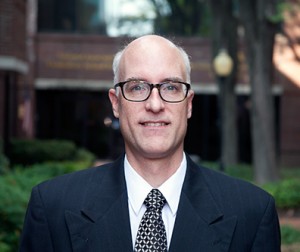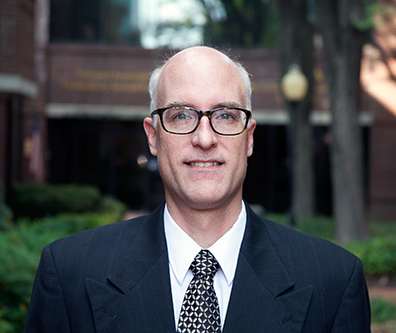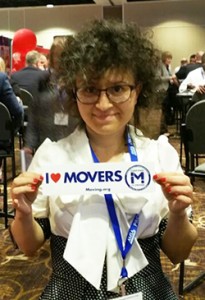
The American Moving and Storage Association is the national trade group for the professional moving industry. AMSA is the voice of the industry on Capitol Hill and provides legal assistance, offers certification programs and helps with claim disputes.
Each year, AMSA hosts an education conference. An event that is one of a kind. For four days, you are being able to watch and learn from the best and the brightest in the industry, build invaluable connections with peers, brainstorm and discuss ongoing disruptions.
Without any further ado, I would like to bring your attention to the exclusive interview we did with Scott Michael, AMSA President and CEO.

Scott Michael, AMSA President and CEO
New Orleans, March 20th, on the 5th floor in the Sheraton, here is what Scott Michael shared about the event, the state of the industry and AMSA future.
Manuela Irwin: Well, here we are at AMSA’s 97th Annual Conference, tell us a bit about the event.
Scott Michael: This is the conference with something for everyone. The 4-day event is infused with daily general sessions with prominent speakers, top-notch education sessions and training opportunities to build best practices, exciting special events and hours of networking. We have 80 vendors to come and show their innovative products and services.
This year we concentrated on a few crucial legal issues that you have to be aware of. There has been a new rule by the FMCSA requiring movers to install Electronic Logging Devices (ELDs) in their vehicles that will come into effect in December 2017. Therefore we invited a vendor that sells these products to provide detailed information about those devices. We also urged a couple of movers who have already adopted this policy and implemented the ELDs in their fleets to talk about the lessons they have learned when utilizing the technology and the benefits that have come out of this process.
Another key industry topic that we decided to cover concerns claims and dispute resolutions. We asked four repair firms to provide solutions regarding fixing different damages. Not every move is going to be perfect. Sometimes accidents happen and you need to make things right for the customer. We also partner with the CPPC, which represents repair firms. They clean up a lot of messes for us (smiles).
The focus should be on coming and learning useful insights and getting advice about essential industry aspects, and incorporating them into your business to be more successful.
Manuela Irwin: What major issues do your members currently face and how should be those addressed?
Scott Michael: Changing customer demands pose a challenge in the industry. More and more people are looking for different options, rather than hiring full service professional movers. Younger folks want to do the move by themselves. They don’t want to have in-home estimates. It is a critical situation for movers. If they want to stay in business, they need to listen to their customers and keep in touch with what the customers are looking for, and find a way to provide that.
A lot of rogues have been attacking the industry over the years. They try to come in and pull people, and take them away from legitimate movers – ripping off their customers. However, there are some rules that have come in place in the last three years that have helped with fighting rogue companies.
We have seen a crackdown on brokers. The FMCSA is taking a look at those and making sure that brokers are following the rules, such as disclosing that they are brokers and identifying who they are working with. A lot of consumers have been hurt by using brokers. That is why we recommend people work directly with the moving company, to check up the household goods carrier and make sure they are working with a reputable mover.
AMSA is looking now to see if there is a way to reduce some of the paperwork that is involved in the moving process as it is quite a burden on consumers and moving companies.
Another primary issue is that movers need to get prepared for the ELD mandate, which comes into effect in December 2017. The cost of the devices is not just a one-time purchase fee, but there is also an ongoing monthly subscription fee for most of the ones I have seen. Usually, the driver is the one that ends up purchasing the equipment. Sometimes the company will buy it for the driver. That’s definitely a challenge for smaller companies if the cost is prohibitive.
On the plus side, ELDs make it easier to do all the logs and all the paperwork. It saves drivers time. Furthermore, there are devices that have additional features like GPS that will facilitate the moving process.
Manuela Irwin: Speaking of your members’ struggles, how do you evaluate a potential business before granting membership and how do you ensure they keep up with your rules?
Scott Michael: It’s a tough challenge. We have 4,000 members and keeping track of each of them is certainly very time-consuming and quite a work to do. We screen a company when it applies to be a member – look up their records, confirm that they are licensed and check what kind of reviews they have online. We also look into the individuals that are in charge of the company – investigate if they have bad history in the industry and they are not just trying to set up a new company to cover up the mess.
 In many cases, we have new start-up companies that are joining the association. As they don’t really have a track record and they don’t have consumers that have given reports online about them, it’s difficult to get a sense whether to let them in or not. That is why the ProMover certification program has an 18-month test period: You have to be an AMSA member for 18 months before you can apply to be a ProMover.
In many cases, we have new start-up companies that are joining the association. As they don’t really have a track record and they don’t have consumers that have given reports online about them, it’s difficult to get a sense whether to let them in or not. That is why the ProMover certification program has an 18-month test period: You have to be an AMSA member for 18 months before you can apply to be a ProMover.
And then for all members we do an annual checkup. We do the initial screen when they first apply, but then every summer we investigate each of the members in the association. I am being a little vague here, because we do not want to tell people exactly what we look for, so they know how to beat the system. And, we change the research process a bit each year.
In addition to that, we do keep track of consumer complaints that are coming to the Association during the course of the year. If a company receives too many complaints, we investigate it outside of the regular annual checkup.
When we started in the first year, when we brought the ProMover program in, we had a couple of hundred companies that did not meet the criteria and we had to take them out. It’s been dropping since then.
AMSA is the national association of the professional moving industry. We want to make sure that our members are acting professionally all the time.
Manuela Irwin: With all the new regulations and the ever-changing business environment, how do you see the moving industry evolving in the next few years?
Scott Michael: Let’s start with the FMCSA. They are the regulatory agency that affects our industry and so we definitely keep a close watch on what they are doing. They have a new rule that they’ve proposed on Safety Fitness Determination and

In AMSA We Trust!
we asked them to give a 60-day extension on the comments period, which they agreed on. We are also urging them to simply put that rule off until they clean out the CSA process and figure out all their safety tracking of companies, before they move on to a new SFD rule.
That’s the kind of interaction that we are trying to do to make sure that the FMCSA is staying in proper course and is not creating too many burdens on the industry.
Last year, the Congress passed a long-term highway bill that authorizes states to make plans for road and bridge repair, and tackle basic infrastructure improvements. Along with including some pivotal legislative priorities, like removing the CSA scores from public review, we managed to prevent shifting household goods enforcement to the different states. This highway bill is going to be good for the industry and for the country as a whole.
We are hopeful that a more business-friendly administration will make the FMCSA an agency not to be feared of, or one that poses problems in the future. So I guess that’s not just a hope, but a prediction. It’s going to be a little better on the regulatory side and we won’t see too many crazy rules in the next few years.
The future I see for a lot of movers in our industry is diversification, getting into other areas when the moves drop in the slow times of the year. I often get out on the road and meet with movers – visit their facilities and talk to them. I have seen a lot of movers that are really doing the job to diversify and getting other works besides moving. The most recent one I went to see was doing furniture installs for hotels. Some people are doing solar panel installations – different kinds of works that are sort of transportation, logistics, warehousing, but not directly moving.
The economy seems to be doing better, so I am optimistic that more and more Americans will be moving and we will continue to see business opportunities for movers. I am hopeful.
Manuela Irwin: And how do you see your organization changing in the near future? What’s on AMSA’s agenda?
Scott Michael: Our focus is really on the advocacy side of things. We want to prevent the Congress and the FMCSA from passing rules that will negatively affect our industry. We would like to see some improvements on the Hours-of-Service rule. We would like to see a better business environment for our industry. We will keep pushing Congress to do some good things for us.
Our biggest single customer, the military, is an important part of our business mix. Actually, that’s my background. I spent 20 years representing the industry before the military. We are going to keep trying to make the military be more responsive.
Manuela Irwin: What is your personal message to all of your members and all household goods carriers in the industry at all?
Scott Michael: It is important to be professional, so show consumers out there that you are professional. You want to get involved in your community, you want to help out. Whether it’s Move for Hunger or some other charitable organization, get involved in your local community. That helps build connections to get more business and builds a good name for the industry. I think having that attitude, that professional attitude, is really very valuable in terms of growing your business, in terms of having a good reputation in the industry and being successful.
Thank you Scott Michael for your time and for making things right for everyone in the industry. Thank you for your never-ending efforts and your commitment to support professional movers sustainable growth in today’s volatile business environment.
Special thanks to Michael Keaton and all AMSA officers who keep moving our industry forward.